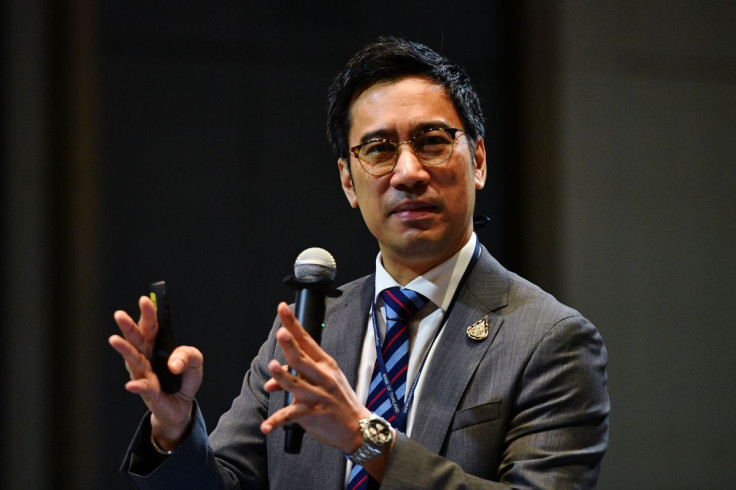Thailand Learned Its Lessons In 1997, Aims To Keep Economy ‘Intact’

Twenty-five years ago, a run on the Thai currency triggered a financial meltdown that sent the economy of the entire region topsy-turvy, sinking the currencies of Indonesia and South Korea and others. It spread ultimately as far as Russia and Brazil. The Asian financial crisis in 1997 led to a deep recession, bankrupting well-known companies and toppling governments. It seems Thailand learned its lessons.
Despite the global economic volatility, Thailand's central bank governor said on Oct. 4 that the nation's economy would remain intact.
Boosted by improving consumption and the vibrant tourism sector, the Thai economy, according to Sethaput Suthiwartnarueput, is expected to grow 3.3 percent year-on-year in 2022 and 3.8 percent in 2023 in the second-largest economy in the ASEAN behind Indonesia.
Due to the pandemic, last year's growth of 1.5 percent was the lowest in the region. Thailand saw an explosion of infections, from a 7-day case average of around 130 in March to an astronomical high of 21,000 in August 2021.
Once a flourishing sector, tourism in Thailand was impacted by the pandemic. Visitors to Thailand dropped by 95 percent in September 2021 compared with the previous year. The country reopened to vaccinated travelers from 63 nations on Nov. 1, 2021.
Thailand already had 4.38 million tourists in the first eight months of this year, according to the Ministry of Tourism and Sports.
The central bank expects tourist arrivals to reach 9.5 million in 2022 and 21 million in 2023. In 2021, only 400,000 people set foot in the Southeast Asian country from the peak of 40 million in 2019 before the pandemic.
Thailand has put in place efforts to woo tourists by providing subsidies for hotel stays and flights and offering special packages for high-end travelers.
Because of high inflation and a weak currency, the Bank of Thailand twice increased the key interest rate by a quarter point in the past two months.
A further rate hike is expected in November, according to Reuters.
A weaker baht is benefitting the tourism industry, which accounts for 18 percent of the country's GDP, by making everything cheaper for visitors.
The economy of the nation has improved significantly as a weak baht is helping exports, and Thailand's national currency is at its 16-year lows against the U.S. dollar.
Exports are expected to increase 8 percent this year, Finance minister Arkhom Termpittayapaisith told a business seminar.
"But supply chain problems, such as in the automobile and electronics sectors, are preventing export from growing at its full potential," he added.
The main growth engine of Thailand's economy is export, which accounted for 60 percent of GDP before the pandemic. The manufacturing sector plays a vital role, accounting for 27 percent of GDP in 2021.
Thailand has reaped rich dividends from the ongoing Sino-U.S. trade war with several firms, especially electronics, chemicals, and automotive companies, relocating from the communist nation to Thailand.
In February, the total value of foreign and local investment applications totaled 643 billion baht ($19.4 billion), a hike of 59 percent compared with the previous year.
Electricals and electronics firms topped the list, followed by the medical sector, petrochemicals agriculture and automotive and parts.
After the COP26 in Glasgow last year, nations have chalked out plans for the elimination of fossil fuel emissions. Thailand is betting big on this transition by trying to evolve into a hub for electric vehicle (EV) production.
The country has doled out sops like tax holidays and investment incentives for EV infrastructure. In February 2022, Thailand introduced exemptions for duty for a wide range of EV models.
Already, Thailand has the largest automotive industry in Southeast Asia and is considered the 10th largest in the world. The National EV Committee plans to have 50 percent of EVs locally produced by 2030.
Mercedes, the German luxury carmaker, has zeroed in on Thailand as its first site in Southeast Asia to manufacture its electric EQS model. Japanese auto major Toyota and Chinese manufacturer Great Wall Motor have shown interest in churning out EVs in Thailand, also known by its nickname 'Detroit of Asia' because of its well-developed automotive supply chains.
The widening interest rate gap between the dollar and Thai baht is not something to brush aside. So far, the baht has fallen 12.8 percent against the dollar this year as the Federal Reserve is continuing with an aggressive tightening cycle.
Fueled by increasing energy and food prices, the consumer price index, a main gauge of inflation, increased 7.86 percent year-on-year in August, the highest level since July 2008.
In fact, the push for positive growth in 1997 did wreak havoc on the Thai economy. Thailand has to see to it that history does not repeat again.
























